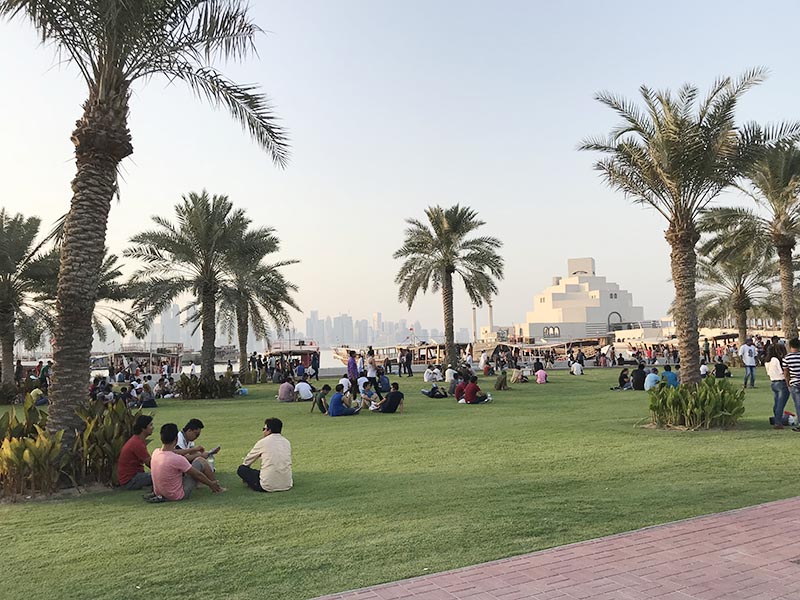Qatar PR cards for deserving migrants
Kathmandu September 21
Qatar has enacted a new law allowing migrant labourers and entrepreneurs, who meet the requirements, to hold permanent residency cards.
This law is expected to benefit hundreds of Nepalis in Qatar, where around 450,000 Nepali migrants are working.
Ambassador of Qatar to Nepal Yousuf Bin Mohammed Al-Hail told a group of journalists that the new law would benefit thousands of Nepalis and Indians.
It states that PR card holder can establish a company without a Qatari partner. “The applicant should have a continuous normal legal residency in Qatar for 20 years if born outside and 10 years if born in the country, provided that period of residence is consecutive and prior to the date of applying for a PR permit,” Qatari Ambassador Al-Hail said.
The clause of continuous stay is not undermined by the applicant staying outside the country for 60 days in a year. “In all cases, this period shall be deducted from the time calculated as residency in the country,” said Ambassador Al-Hali. The applicant should also speak fluent Arabic.
The children of a Qatari woman married to a foreigner, the foreigner husband of a Qatari woman, the foreigner wife of a Qatari man, the children of Qataris by naturalisation, individuals who have done great service to the country and individuals with special competencies needed by the country are exempted from the above conditions.
Nepal’s Ambassador to Qatar Ramesh Koirala told THT over phone from Qatar that not too many Nepali workers were excited about Qatar’s new rule, mainly because it requires 20 years of continuous stay and fluency in Arabic.
Embassy officials said they were collecting data on how many workers in Nepal had completed 20 years of stay. “There is a significant number of migrant workers who have worked for 12 to 15 years. I have not met many who have completed 20 years. Some people who have opened businesses here may have completed 20 years of stay. We are collecting their data,” said Deputy Chief of Mission, Nepali Embassy in Qatar, Mani Ratna Sharma.
Koirala, however, said the Qatar government’s new policy would certainly benefit Nepali labourers. “Qatar has introduced a series of reforms in its labour laws, as well as its financial and business sectors,” he said. He added that the new plan could be a part of its policies to reform its labour and business sectors.
According to the new law, a PR card applicant should enjoy good conduct and reputation and should not have been convicted in or outside Qatar in crimes that undermine honesty, trust and fame.
Cardholder benefits
- The PR cardholder may receive treatment and education in government institutions within the state
- The spouse of the card holder and his or her children shall enjoy the privileges granted to the PR card holder pertaining to residence, health and education until the age of 18 years
- The PR card holder shall have the right to invest in the activities of the national economy sectors without a Qatari partner
- S/he may own real estate for housing and investment






